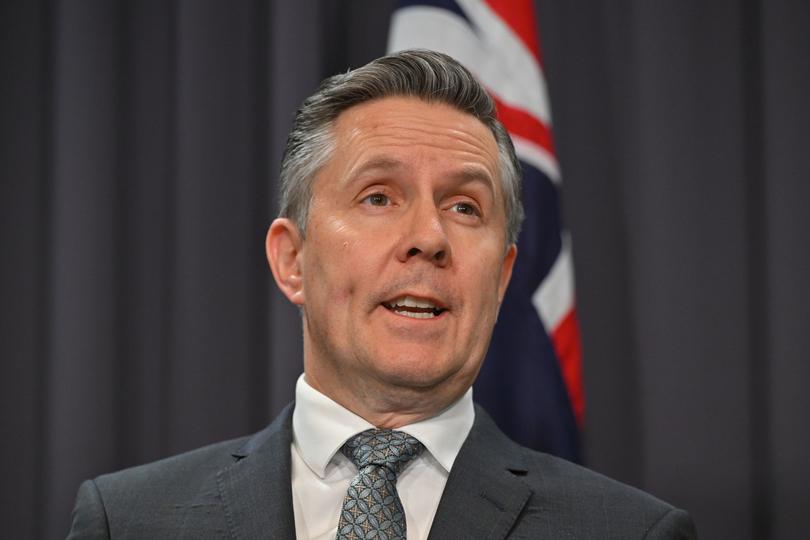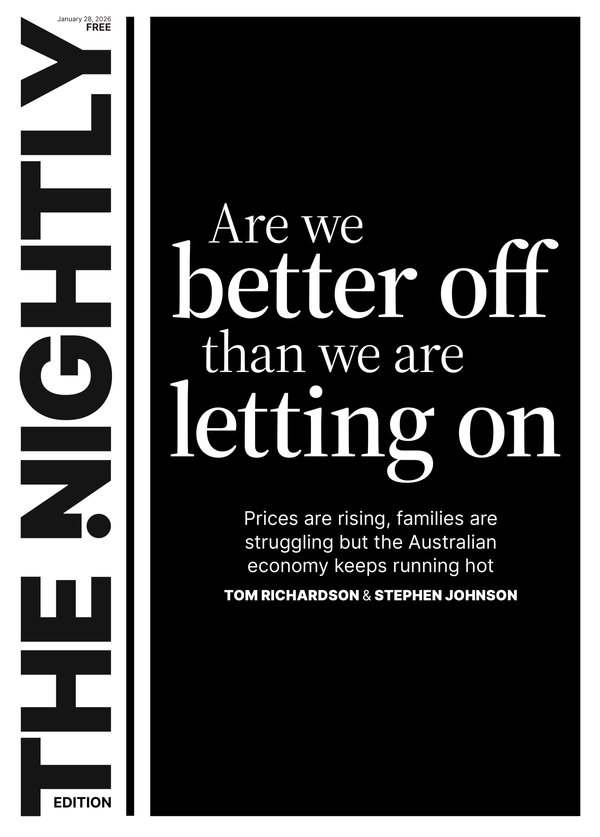Health Minister Mark Butler threatens crackdown on ‘sneaky’ private insurance firms for price-gouging

Health Minister Mark Butler has threatened a crackdown on “sneaky” price-gouging practices by private health insurers that are being used to charge millions of Australians more for coverage.
Mr Butler on Monday put insurance firms on notice that they risked being named and shamed or faced tougher legislation to stop unfair premium hikes if they did not “do the right thing” by consumers.
His warning followed an investigation by Commonwealth Ombudsman Iain Anderson that found private insurers are charging new customers more, applying secret premium increases above what is allowed under the annual premium review process by closing and reopening policies.
Sign up to The Nightly's newsletters.
Get the first look at the digital newspaper, curated daily stories and breaking headlines delivered to your inbox.
By continuing you agree to our Terms and Privacy Policy.In one of the starkest examples of the practice, the probe discovered that at one insurer in 2023, the average premium for a new Gold policy was 21 per cent higher than the average premium of the closed policy, while in 2024, it was 14 per cent higher.
Gold tier is the highest level of private hospital cover available in Australia. It includes major and elective surgeries, mental health and palliative care, and maternity and reproductive services.
The secret premium increase, dubbed “product phoenixing”, means new customers taking out Gold tier policies are paying hundreds of dollars more than existing customers each year, said Mr Butler, ordering companies to abolish the practice or face tougher legislation to prevent it.
“[It] is not strictly against the law but…it is clearly against the spirit of the law. It is an underhanded, largely secret way of health insurers raising their prices outside of the usual approval process,” he told reporters in Canberra.
“This is sneaky…Policy holders or potential policy holders aren’t made aware of this,” he said.
“You can describe it as price gouging if two members of an existing fund, the same fund with essentially the same product, are paying prices that might be 20 or more per cent different because of this phoenixing practice,” he added.
“This is an industry-wide challenge. I’m not saying every insurer does it, in every state and territory, but this is widespread,” he said.
Insurers had “quite openly” admitted to engaging in this policy and indicated that they intended to continue doing so.
Mr Butler said he had tasked the Ombudsman with monitoring the situation, particularly through the next premium round over the coming weeks and months. New insurance premiums kick in on April 1 every year.
“If there has not been a really substantial change to the behaviour of insurers...then I reserve the right to consider legislative options to outlaw the practice in future,” he said.
“The insurance industry — as a whole — needs to sharpen up their act and stop this practice,” Mr Butler warned, adding that if there was no indication of change “all options are on the table. And that will include naming insurance providers that we know are conducting this practice.”
Private health insurers can apply once a year to raise the premiums for their private health insurance policies and each premium rise must be approved by the Minister for Health.
The Ombudsman’s investigation was triggered by a report by leading consumer advocacy group, Choice, in February that some insurers were increasing premiums by far more than was expected, after the average premium increases for 2023 had been announced.
Choice reported that during the past three years, some insurers closed cheaper Gold-tier policies to new customers and released very similar Gold policies for new customers that were much more expensive.
It alleged some insurers may be introducing new policies as a way to circumvent the annual premium approval process applicable to existing policies and said some Australians were paying more than three times the headline premium increase for top-grade hospital insurance.

Official health department data showed average health insurance premiums went up by 8.6 per cent over the past three years, but a closer look revealed the prices for an average customer at Gold level had actually spiked by over 30 per cent on average, said Choice health insurance expert, Jodi Bird.
For examples, in 2021, a family in NSW paid on average $5380 for a Gold hospital policy, with a $750 excess, per year. Now, the average price had blown out to $7090 per year, the group found.
The Ombudsman’s own data upheld the claim that some insurers were closing then opening almost identical private health insurance policies, hitting new customers with higher costs and restricting consumer choice.
The Ombudsman concluded that insurers who may be engaging in this behaviour were not breaching health regulations as they do not require approval from the Minister to introduce new policies or close off policies to new customers.
“It is a matter for government whether they amend the regulations to stop this practice,” the Ombudsman said.
Mr Butler said he had sought the advice of the prudential regulatory authority, APRA, around the capital adequacy of private health insurers to ensure it remained sustainable into the future.
On the back of APRA and health department advice, he plans to write to all 29 insurers to “present to me a lower increase for their products.”
Health insurance and private hospitals operated with significant support from taxpayers every year and “need to respect that social licence,” he said.
“I want to give [the industry] a chance to do the right thing. But that chance won’t be open forever, and if there’s not some very clear indication soon on the change of practice by insurance companies, then I will take legislative action.”

